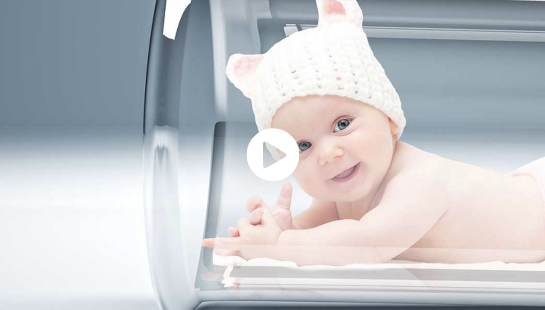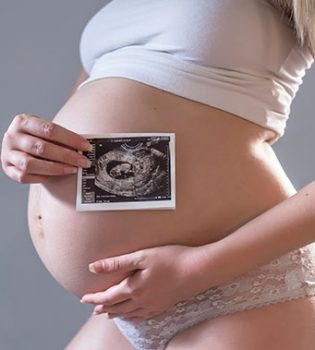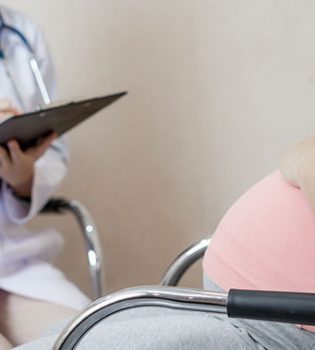Multiple pregnancy can be defined as the formation of more than one fetus in the uterus. The vast majority of multiple pregnancies are twin pregnancies. In general, twin pregnancies can be said to occur once in 90 pregnancies, if they occur spontaneously. However, as assisted reproductive techniques such as inoculation and in vitro fertilization have started to increase a lot, the incidence of multiple pregnancies has increased. It can be said that twin pregnancies occur roughly in 25-30% of IVF applications.
Twin pregnancies can be in the form of monozygotic twins (also known as indentical twins), in which the same egg is fertilized by a sperm and splits into two at the stage of division, or dizygotic twins (also known as fraternal, or non-identical twins), which are formed when two separate eggs are fertilized by two separate sperms. Identical twins can be of the same genetic load and the same sex, while fraternal twins can be of the same or different sex. Almost all of the twins seen in IVF are fraternal twins.
If we talk about identical twins;
These siblings, who have the same hereditary characteristics such as blood type, gender, eye color, are very similar to each other in appearance. In an identical twin pregnancy, the fertilized egg cell divides again in the first three days after fertilization and turns into two separate embryos, and these embryos continue to develop separately. In this case, each baby’s placenta and the water bag it is in are different. Sometimes, the placentas may appear to be united on ultrasound, as they are in close contact with each other. When post-fertilization separation occurs between the fourth and the eighth day, two babies with a common placenta but separate water sacs begin to develop.

Separation after fertilization can sometimes occur after the eighth day. In this case, both the placenta and the bag of water they are in are the same. So these two babies share exactly the same environment. This type of twins are more likely to experience problems than other types. Doctors distinguish the type of twin pregnancy at the beginning of pregnancy and continue their observations accordingly throughout the pregnancy. Sometimes (very rarely) cleavage occurs after the structure called the embryonic disc has formed. In this case, since the embryo has actually formed, the division cannot fully take place and conjoined twins (which we call Siamese twins) occur.
What are the Risks in Twin Pregnancy?
- From the beginning of pregnancy, complaints of nausea and vomiting are more common than normal. Again, it can be said that the probability of miscarriage is slightly higher.
- Premature birth and the associated premature baby risk are among the most common problems. While the duration of pregnancy in a normal singleton pregnancy lasts 39-40 weeks, the normal delivery period in twin pregnancies is 37 weeks on average.
- Birthweights are usually lower than single babies. It is also possible for one twin to be more likely to be fed less than the other and therefore to have a significant weight difference between them.
- Risks such as anemia, hypertension (preeclampsia) are also more common in twin pregnancies.

The respiratory, circulatory and digestive systems of twins have to meet a much greater need than pregnancy with a single fetus. Therefore, twin pregnancies should be followed up more closely. While it is necessary to monitor once a month in normal pregnancies, it is necessary to monitor twin pregnancies at least once every 3 weeks. In the following weeks, the gait and balance of the pregnant woman are affected more than in single pregnancies. Shortness of breath is observed. Problems such as hemorrhoids and varicose are more common. Excessive load can also cause strain and pain in the spine. Again, the rate of hospitalization in the last weeks is higher than in singleton pregnancies. Delivery of Twins.
Most twins get delivered before the appointed time. Normal delivery of twins usually progresses smoothly. Still, cesarean section is more common in twin births. One or both of the babies may be in the wrong position because this is their only way of finding a place. One or both babies may turn upside down, that is to say, their feet come first. Often, a baby lays across the uterus, in which case a cesarean section is necessary. In addition, babies can be weaker and smaller than a single baby, so cesarean is often chosen because of the least tiring way for them. During a twin pregnancy, you will see your gynecologist more often and every aspect of pregnancy, prenatal and delivery will be carefully examined.• One of the feared issues is that postpartum bleeding is more common in twin pregnancies. However, this risk is not dangerous when necessary precautions are taken.
Twins need more time for postpartum care. Even if your twins are healthy, you may need to stay in the hospital longer. This allows you to feed them more comfortably and gain the confidence to deal with their daily care.







